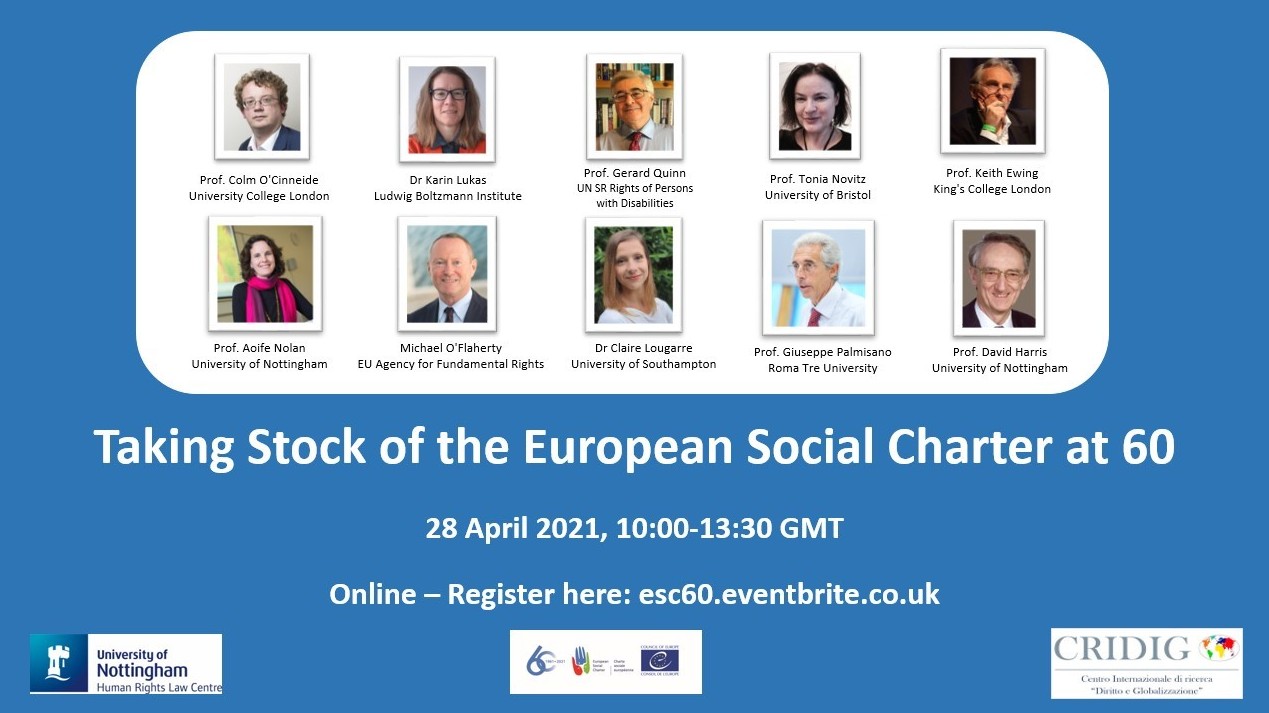In the Declaration on Human Rights of 27 April 1978, the Member States of the Council of Europe decided "to give priority to the work undertaken in the Council of Europe of exploring the possibility of extending the lists of rights of the individual, notably rights in the social, economic and cultural field, which should be protected by European conventions or any other appropriate means".
Further to this declaration, the Committee of Ministers of the Council of Europe initiated extensive consultations with a number of steering committees which were invited to draw up opinions on the possibility of including new economic and social rights in instruments such as the European Convention on Human Rights and the European Social Charter (hereafter "the Charter").
The Steering Committee for Social Affairs (CDSO) was instructed to take the lead in this process with regard to the Charter.
Having been instructed in 1980, in its initial terms of reference (Decision No.CM/174/240180), to "undertake a review of the rights incorporated in the European Social Charter to determine whether they should be updated or supplemented" and "to consider whether there are any rights which might be suitable for inclusion in the European Convention on Human Rights", the CDSO was instructed in 1981 (Decision No. CM/252/250981) "to undertake the drafting of a preliminary working paper presenting in standard-setting form the various proposals for the rights to be incorporated in an additional Protocol to the European Social Charter".
Subsequently, on the basis of this working paper drafted by the CDSO, the Committee of Ministers adopted a third set of terms of reference (Decision No. CM/219/190183) asking the CDSO to "prepare a preliminary draft for a Protocol to the European Social Charter".
The CDSO carried out this task at meetings which it held in March, July and October 1983 and again in April, July and October 1984 and adopted the text of a preliminary draft additional protocol including an appendix forming an integral part of it.
At their 378th meeting, the Ministers’ Deputies (November-December 1984) considered it necessary to consult management and labour and instructed (386th meeting, June 1985) the CDSO to re-examine the preliminary draft additional protocol in the light of the views expressed by the European Trade Union Confederation (ETUC) and the Union of Industries of the European Community (UNICE) on the occasion of the annual meeting of the Liaison Committee between the Council of Europe and management and labour (LCML) held on 18 and 19 February 1985.
Furthermore, in response to the wish expressed by the Assembly in its Recommendation 1022 (1986) on the European Social Charter for "a political appraisal", the Ministers’ Deputies (394th meeting, March 1986) decided to consult the Assembly on the text of the preliminary draft additional protocol before finalising the position of the Committee of Ministers on the matter.
On 26 January 1987, the Assembly adopted Opinion No. 131 (1987) proposing some amendments to the preliminary draft both as regards the wording of the rights proposed and also the conditions for ratification of the future protocol and the scope of its application to persons ratione personae.
The Committee of Ministers adopted the Additional Protocol to the Charter on 26 November 1987 during its 81st session; this Protocol was opened for signature on 5 May 1988.
More information




